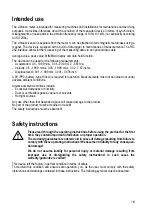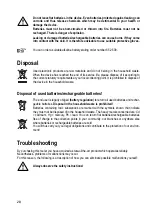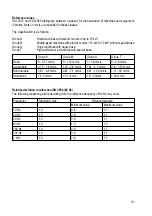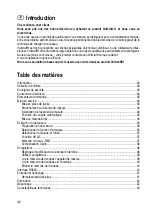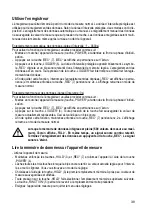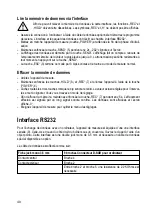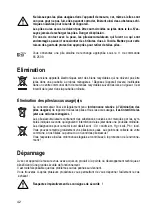
28
Do not leave flat batteries in the device. Even batteries protected against leaking can
corrode and thus release chemicals which may be detrimental to your health or
damage the device.
Batteries must not be short-circuited or thrown into fire. Batteries must not be
recharged. There is danger of explosion.
Leaking or damaged batteries/rechargeable batteries can cause burns if they come
into contact with the skin. It is therefore advisable to use suitable protective gloves.
☞
You can order a suitable alkaline battery stating order number 65 25 09.
Disposal
Used electronic products are raw materials and do not belong in the household waste.
When the device has reached the end of its service life, please dispose of it according to
the current statutory requirements at your local collecting point. It is prohibited to dispose of
the device in the household waste.
Disposal of used batteries/rechargeable batteries!
The end user is legally obliged (battery regulation) to return all used batteries and rechar-
geable batteries. Disposal in the household waste is prohibited!
Batteries containing toxic substances are marked with the symbols shown that indicate
they must not be disposed of in the household waste. The heavy metals concerned are: Cd
= cadmium, Hg = mercury, Pb = lead. You can return flat batteries/rechargeable batteries
free of charge to the collection points in your community, our branches or anywhere else
where batteries or rechargeable batteries are sold.
You will thus carry out your legal obligations and contribute to the protection of our environ-
ment!
Troubleshooting
By purchasing this meter you have acquired a state-of-the-art product which operates reliably.
Nevertheless, problems or malfunctions may occur.
For this reason, the following is a description of how you can eliminate possible malfunctions yourself:
Always observe the safety instructions!






